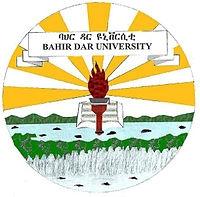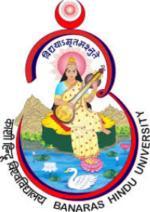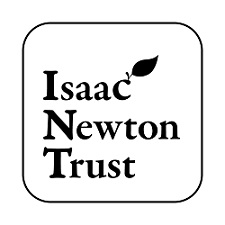The programme's booklet (containing further details about the workshop and about the speakers) is shared here.
The projects that were supported by this programme are described here.
The workshop and subsequent project provided valuable lessons in how to build effective international research collaborations to generate real impact.”
David Willer, researching changes in food production and consumption from meat to sustainable fish and shellfish for food security and human health benefits at the Department of Zoology
Seed Funding Competition
Cambridge Global Challenges SRI (CGC) and Cambridge Global Food Security IRC (CGFS) wish to support interdisciplinary research addressing specific challenges relating to malnutrition in Official Development Assistance-target countries. The TIGR2ESS project in India, in which both CGFS and CGC are involved, and emerging CGC partnerships in Eastern and Southern Africa, have enabled the identification of specific malnutrition challenges.
Isaac Newton Trust has been awarded to run a seed-funding competition. Small grants of up to £3,000 will be available, on a competitive basis, to fund either travel or equipment to investigate early-stage ideas. The aims are i) to bring together new interdisciplinary teams of researchers who will work collaboratively, and ii) to develop new research ideas to the point where larger applications to established funding bodies are feasible, for continuation of the research on a larger scale.
Workshop
A day-long workshop will facilitate interdisciplinary dialogue and promote the generation of collaborative research ideas. Only those attending the workshop will be eligible to apply for seed funding. The participation of early career researchers is encouraged.
Researchers from Bahir Dar University (Ethiopia), the Nabakrushna Choudhury Centre for Development Studies (India) and Banaras Hindu University (India) will present case studies representing three specific challenges to addressing malnutrition in developing countries. Through an interactive exercise, participants will form small groups to develop proof of concept projects to address these challenges. Single page summaries of these projects with proposals for the use of seed funding will be submitted at the end of the day. Proposals will be judged by an independent panel, and the best ones will be selected to receive funding. In addition, the development of promising ideas projects will be supported by the opportunity to present them at the Cambridge Global Food Security Symposium in April 2019.
Case Studies
Revival of millets in crop systems for improved nutrition and economic security in Odisha
Srjit Mishra – Nabakrushna Choudhury Centre for Development Studies, India
Millet has long been a staple part of the diet of the tribals of Odisha, but development agencies and farmers have ignored it recently in favour of rice, wheat and other cash crops. Millets are climate resilient crops systems, and their revival will enhance the resilience of farming systems and household food security against climate change. Increasing urban demand, improvements in processing machinery, availability of improved cultivars, better agronomic practices and the possibility of accessing support irrigation has increased the potential of realising higher productivity in millets, thereby improving nutrition security, resilience and economic security of Adivasi households.
In 2017 the Indian Government launched a special programme for the promotion of millets in tribal areas to improve nutritional security. The Odisha Millet Mission, which won the SKOCH Award-2017 for being among the top 30 Transformational Innovation Projects in India, began in 2017 and will run for 5 years. The Government pays the millet cost price to farmers willing to grow it and has also introduced minor millets into midday meal programme on pilot basis. The aim is to revive millets in crop systems, and improve their productivity for a marketable surplus thus enhancing farmers’ income. The programme also aims to increase household consumption of millets, reducing hunger and improving nutrition.
With government support and rising awareness of the benefits of this climate-resilient and nutritious cereal, many farmers are coming forward to grow millets, which need much less water than rice to grow.
Responding to chronic maternal and child undernutrition in Ethiopia
Hirut Assaye – University of Bahir Dar, Ethiopia
Despite the progress made in recent years, Ethiopia still has one of the highest levels of chronic undernutrition (stunting and underweight) in the world. Micronutrient deficiency is also a serious public health problem in the country as more than 50 thousand children die each year due to vitamin A, iron and folic acid deficiencies. Ethiopia’s GDP is depressed by 1.42% due to current levels of anemia, vitamin A and folic acid.
The Government of Ethiopia finds this situation unacceptable and has decided to focus on ending child undernutrition by 2030 with a commitment to the ‘Seqota’ Declaration. The current situation regarding maternal and child nutrition
in the country will be discussed, along with the challenges and opportunities to improve the situation, and strategies and programs being developed and implemented in response.
Improving food security and nutrition in Ethiopia using novel technologies to irrigate from groundwater, process crops, prepare food and enhance market access
Seifu Tilahun – University of Bahir Dar, Ethiopia
Since 2015 Bahir Dar University has supported a Small Scale Irrigation (SSI) and Sustainable Intensification (SI) innovation lab as part of an international Feed the Future initiative. This consists of research interventions to introduce dry period irrigation with two farming communities that previously practiced rain-fed agriculture.Demand-driven field level pilots, including analysis of novel technologies and practices (water lifting, distribution, irrigation scheduling, productivity, irrigated fodder, and conservation agriculture), were implemented with more than 100 farmers in the two communities.
International partners such as IFPRI conducted surveys to assess linkages between Small Scale Irrigation, nutrition and gender, while IWMI did a market analysis of technology supply chains and private sector role in Small Scale Irrigation.
An applied human nutrition study was conducted, including training 50 farmers on nutrition. The key findings were that farmers gain multiple benefits with a range of incentives to adopt new technologies. Irrigators have higher household dietary diversity (economic access to foods) and irrigation improved child growth (reduced stunting). In order to promote dry period irrigation, however, reducing labor (including household task) through technologies is critical to increase profit and transform livelihoods through intensification. The intervention also found that irrigated fodder was feasible, both as a cash crop and for small farm use.
While the results of this intervention are promising, if food security and sustainable livelihoods for Ethiopian farmers is to be achieved, further research is needed to evolve context-appropriate technologies for irrigation, farming, food processing and preparation and market access.
Challenges in achieving healthy nutritional security for people of India: a physiological strategy
A Hemantaranjan – Banaras Hindu University, India
Further information
“Developing plans for global nutrition research” was one of the main recommendations of the 2017 Nutrition and Human Health Research Review – a report commissioned by the Office for Strategic Coordination of Health Research and led by the Medical Research Council in partnership with the National Institute for Health Research, which assessed the nutrition and human health research landscape in the UK. It is anticipated that the projects catalysed by this workshop will be eligible for upcoming funding calls that respond to this recommendation (recent calls: UK-Peru: Relationship between Food, Nutrition and Health, UK Nutrition Research Partnership Collaborative Awards, BBSRC/GCRF Food & nutrition research for health in the developing world: bioavailability & nutrient content).
This event is for Cambridge researchers and their collaborators.
Please register before 16th November. The event is free but places are limited.
Please contact Sara Serradas Duarte (sbas@cam.ac.uk, Cambridge Global Challenges SRI) or Jacqueline Garget (jg533@cam.ac.uk, Cambridge Global Food Security IRC) if you have any questions.
The programme was funded by the Isaac Newton Trust.








